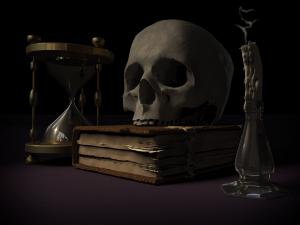
I am currently writing my second book, which I have entitled, From the Blood of Abel: Humanity’s Root Causes of Violence and the Bible’s Theological-Anthropological Solution. In the first chapter, I discuss various manifestations of violence, the most overt being that of war. This has not been an easy task, as I have read so many tales of brutality. So many different cultures and religions—Christianity not exempt by any means—ruining so many lives. One people group stripping another of their humanity, epoch after epoch after epoch it seems. Trails of tears, forced cannibalism, extermination camps, human sacrifice by the thousands, and torture—my G-d the torture! Honestly, it has made sleep much more difficult to find as of late. However, it has not been all negative. It has also helped clarify and strengthen some things. I am going to share both the positives and negatives of my recent foray into the world of death.
I will begin by simply stating that life is so very fragile. It really is. I knew that before, and I’m sure that you do too, but when you dive headlong into the sort of research I have been doing, and at the pace I have been doing it, your thoughts and feelings about this are only reinforced. You feel intensification in your realization that each and every moment could be your last, because of the simple fact that many of us still live with an “us vs. them” worldview. And when you’re a “them”—and all of us are to some—the angel of death lurks around many more corners than he should. Fragility and anxiety—which we all already have—in fact transform to sheer terror for many because of how we view the “other.”
It is reasons like this that initially made me realize how much of “traditional” Christian eschatology and soteriology seemed, well, awful. I know: great theological argument eh? But, for instance, in some schools of Christian thought, one could “achieve salvation” without having loved. One could “have faith in Christ” that they are saved, all-the-while causing fear and terror and torment and pain and humiliation in others. History has shown this. And many times, these “others” are not “saved,” in spite of the fact that they are vastly more loving than the “saved” that cause them such horror. So yes, that is awful. None of it makes sense. Christian justification just seems to boil down to a giant contract, in which our own rationale leads to “making the correct choice” so that our best self-interests are met.
That being said, I don’t want to remain negative any longer. Actually, quite the opposite! What I really want to say is that somehow, we are lucky enough to have a God who still loves us. At times, I may say that I do not know how the hell he does it, but in reality, I do know. It is because God is love and beneath the muck and grime, the hatred and bigotry, the racism and sexism and homophobia, and underneath all the fear that leads us to these things, we are made in God’s image. All of us are. Genesis 1:26 tells us that (I know, proof-texting, yuck!) We must then think God loves all of his children, even if they remain prodigal unto death. Dare we think that death can stop God’s love? I scoff at the notion. Thus, no matter what we do—to ourselves and to each other—in the end, all will be well. And when I say all, I really believe all.
God will save everyone whom he wants, which is indeed everyone.
As I have pondered my own death over the past few months, I have become increasingly grateful that I believe in a God who will always work toward my good. Death still causes anxiety at times (I’m not quite ready to follow Paul in mocking death itself), but there is comfort in knowing that it will also be what brings me to God and therefore, toward reconciliation with everyone. Isn’t that the greatest hope we can have? To live in perfect harmony with everyone who has ever lived, to have perfectly restored relationships, to see Christ in each and everyone, for God to truly be “all in all.” I think it is. But realizing this would not have been possible without understanding the truth that God will save everyone whom he wants, which is indeed everyone. Anything short of that, as St. Silouan the Athonite might say, would be unbearable for love. We are just too interconnected, anthropologically and psychologically. And because love is the reason for all of this, we must hope that love wins in the end.












